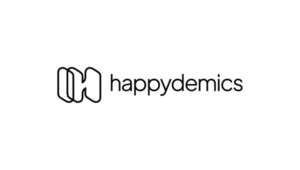The Exchange Lab Presents the Great Debate: Be it Resolved, Programmatic is the Future of Media
←Back to Indexby Lindsay Rowntree on 23rd Jun 2017 in TRADERTALK
At Cannes Lions this year The Exchange Lab hosted a panel at the IAA cabana, with the panellists debating whether programmatic really is the future. Moderated by Carolin Roth, anchor of CNBC’s Marketing|Media|Money; Tim Webster, co-founder and CSO of The Exchange Lab; Patrick Muir, ex co-founder and CMO of Egg Bank; and current acting CMO at Sherpa; John Beasley, ex-CMO of Monster Energy and current CMO at Vero; and Dan Benedict, chief client officer, Maxus argued the pros and cons of programmatic in today’s advertising landscape.
Webster and Muir, both in the pro camp for the bright future of programmatic, argued that with the changing habits of media consumption and the proliferation of data and devices, programmatic enables us to understand the media journey better than ever before, allowing us to have one coherent conversation with consumers.
Beasley, arguing against the future of programmatic, maintained that it endangers the commoditisation of media, with Benedict, also in the con camp, believing that, while the future of course is, and needs to be, programmatic, creativity shouldn’t be lost.
Webster rebutted Benedict’s argument about creativity as one that shouldn’t be directly correlated with programmatic specifically. “We’re supposed to be debating programmatic, which is a method of delivery”, explained Webster. “There’s a a creativity issue across all of digital media, not just programmatic.”
The conversation did largely centre around the issue of creativity in programmatic (and digital media more generally), which is hardly surprising given it’s the key topic of the Cannes Lions festival. “How many advertising campaigns being awarded across the road at the Cannes Lions festival are those coming through programmatic creative?” asked Benedict rhetorically. “Not enough.”
All agreed that creative does need to catch up with programmatic technology and, despite differing opinions in other areas, all did agree the future is undoubtedly programmatic, and that’s certainly no bad thing.
Beasley, from his perspective on the client side, asked whether we should even want everything to be programmatic. In a somewhat counter-intuitive comment about the mechanics of programmatic delivery, he argued that it’s human nature to rush ahead and do something because we can. “Do we want everything to be programmatic? Do we want everything to be known, be pre-allocated, pre-organised, pre-bookable, pre-ordained? I want most of it to be so I that can forecast and model, but I want a certain amount of unpredictability, as it allows me to surprise myself, my audience, and maybe even the industry, and that’s the bit for me we need to leave room for.”
Benedict went along a similar thread, lamenting the lack of excitement that exists within the programmatic space, versus traditional media: “Advertising, and what brought me into advertising 25-28 years ago, was excitement. Programmatic needs to bring an element of excitement back into communication. I think the rationalisation and technical side is driving it and I want to see more excitement back in, as do consumers.”
Webster argued that, while of course there is work to be done creatively, ultimately the consumer doesn’t know or care how the creative was delivered: “What they care about is, was it engaging, was it additive to their consumption experience? Some of these things are predominantly around digital media – I don’t think anyone could say we’ve nailed how to deliver advertising on mobile devices, because we haven’t; that’s a digital challenge. We can move away from the conversation about the [programmatic] pipework; we need to get better at the application of media.”
Speaking as a veteran marketer, Muir summed up how programmatic has changed his world and the world of marketing teams for the better: “What programmatic does in digital is share that black box thinking with the team trying to produce the creative and put the rubber on the road. It’s replacing the Excel spreadsheet presentation containing the media laydown to something you can interact with, come up with right answer for customers, and connect it with the rest of the business.” Muir explained that, “marketing has actually regressed as a discipline, to something where it’s basically the cool kids in the corner doing something with Facebook and Twitter, and product will do what product does, and finance will do what finance does, and then you get to do some stuff on social media if you’re lucky”. Muir believes programmatic and the democratisation of information allows the marketing team to actually do marketing: “That democratisation of what previously was a black box modelled by your media agency allows the marketing team to go back to what they should be doing, which is the full suite of the marketing mix and taking that to the market.”














Follow ExchangeWire